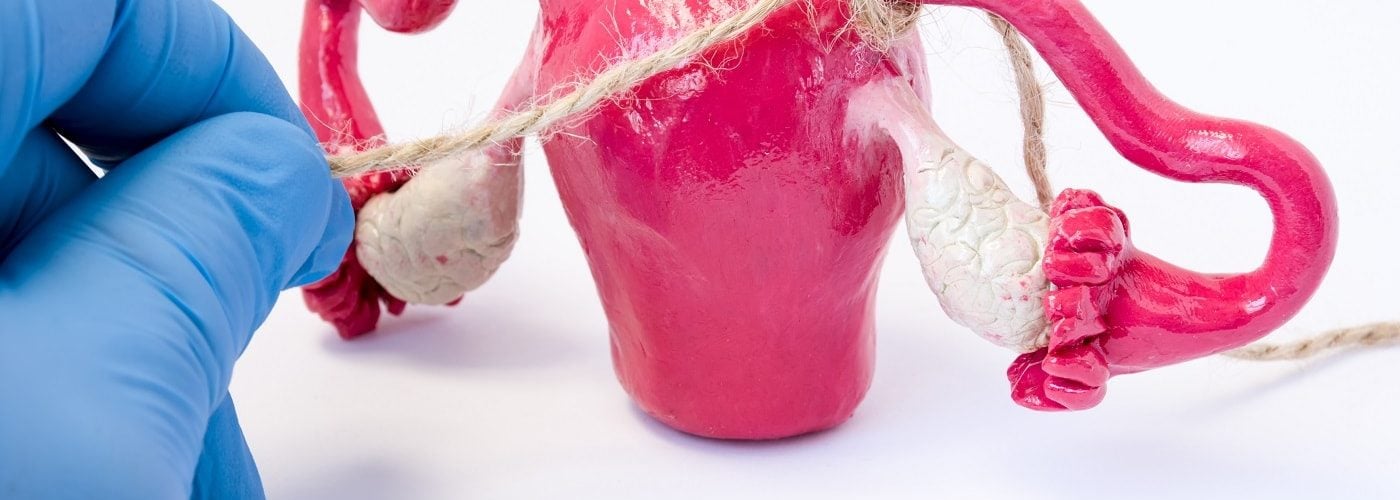
Tubal ligation is intended to be a permanent method of female contraception, so no-one should have the procedure done without very careful consideration. But as we know, none of us have a crystal ball to see into the future. Things can change as a result of life events, new relationships, or simply a change of heart. If this happens, you will want to consider your options for tubal ligation reversal. For this, you need to have a clear idea of what exactly happens during a tubal ligation process and what would be involved in an attempt at reversal.
For many people, pregnancy after tubal ligation is entirely possible. This may be through surgery to reverse it or other options which, according to your age and individual circumstances, could be a better choice for you.
What is tubal ligation?
Tubal ligation is the procedure that many of us know better by the term ‘having your tubes tied’ or being sterilized. In this form of contraception, eggs are prevented from travelling down the fallopian tubes to the uterus by the simple means of blocking the tubes. The same blockage prevents sperm from travelling up the tubes to meet the egg and so conception cannot take place. The tubes can be tied, severed or blocked. This operation can be carried out during childbirth, as an addition to other surgery, for example a Cesarean Section, or as a standalone procedure with the use of small incisions in or near the navel and keyhole surgery.
Due to its effectiveness and permanence, tubal ligation is the contraceptive of choice for approximately 18 million women worldwide. Rates are high in various parts of the world including Western Europe, the UK and the USA.
What if you change your mind?
Most women who opt for tubal ligation do so because they are sure that they have completed their family or that they will never wish to have children. Most are happy with their decision, not least because it frees them permanently from decisions about any other form of barrier or hormonal contraception. But for a minority, changes in circumstances lead to a change of mind, and the need for a tubal ligation reversal.
How does tubal ligation reversal work?
If you decide on a reversal operation, the way that the original ligation was done will have a high impact on the prospects of success, with the best prospects being for those whose original ligation consisted of removing a small piece of the tube or where clips or rings were placed around the tubes to block them.
During the reversal operation, any scarred or blocked parts of the tubes are removed and the two remaining ends are joined together. This can be tricky because the tubes are wider at the top near the ovaries and narrower towards the uterus. Therefore, there is more chance of rejoining them successfully if the two ends are of roughly equal size, rather than one end being significantly larger than the other.
What is the likelihood of successful tubal ligation reversal?
Of course, the ‘success’ of the operation has two aspects. One is the effective rejoining of the fallopian tubes but more significant in terms of intended outcome is the ability to achieve pregnancy after tubal ligation reversal. For this reason, the procedure is not likely to be recommended for women over the age of 40, when the natural decline in fertility becomes quite steep. Other factors come into the decision too, including your overall health, general fertility status and your body mass index.
Is there any other way to restore fertility?
For a woman who has changed her mind about family planning and who is not a suitable candidate for tubal ligation reversal, knowing that her body continues to function fertility-wise, the surgical blockage of the fallopian tube can feel like a real tragedy. Happily, however, there is a way to circumvent the obstacle.
How IVF can get around a tubal ligation
In vitro fertilization (IVF) bypasses the blockage completely because the woman’s eggs are retrieved directly from her ovaries. This is why it is the fertility treatment most commonly recommended when fertility problems arise from advanced endometriosis, which frequently causes problems with the fallopian tubes, or where a woman’s tubes are damaged or completely absent. In IVF, following ovarian stimulation, a number of eggs are retrieved from the ovaries. These are fertilized with prepared sperm in the laboratory and a selected embryo is transferred to the patient’s uterus so that pregnancy can continue in the normal way.
For a more detailed explanation of how IVF works and what the process involves, visit our website pages about in vitro fertilization.
Even with an irreversible tubal ligation, with IVF treatment the odds are on your side. Our independently audited results show that your chance of pregnancy on the first attempt, using all the embryos from your first egg retrieval, is 71.3%. On the third attempt, this rises to 95.2%.
So, if you’ve changed your mind about permanent sterility, there’s plenty of reason for optimism. Just get in touch using our online contact form and we can take it from there.





Comments are closed here.